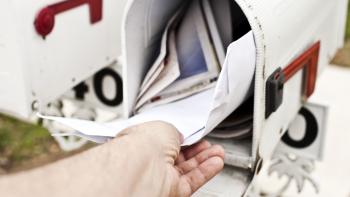Reducing Junk Mail

Posted: July 15 2019
While you’ll likely never be able to get rid of all your junk mail, here are some ways to help you minimize it.
Register for the DMA Choice Program
For a fee, the DMA Choice program will take you off of many national mailing lists.
Companies that don't participate in the DMA Choice program must be contacted directly.
Register Online
You can sign up at the DMA Choice website for ten years.
Register by Mail
You can also sign up by mailing the DMA Choice Registration Form and a check or money order to the specified address.
Contact Companies Directly
You must contact individual companies directly when you receive marketing mailings from a list compiled from public records. This commonly happens when you purchase a new home and property records are updated.
Mail you receive that says "Address Correction Requested" or "Return Postage Guaranteed" on the envelope can be returned unopened by writing "Refused-Return to Sender" on the envelope. The company will have to pay the return postage and may be less likely to send you mail in the future.
Opt-Out of Pre-Approved Credit Offers
You can opt out of credit bureaus including your name on lists used to make credit or insurance offers at www.optoutprescreen.com.
This will only stop offers from creditors or insurers screening your credit report. Your bank, trade group or professional association might continue to sending you offers for credit.
Don’t Use Loyalty Programs
While stores usually give you incentives to join their loyalty programs, they also use your information to mail coupons or other offers to you.
Think Before You Fill Out Product Registrations, Surveys and Contests
Product Registrations
Product registration forms often go to data brokers that compile buyer profiles and rent or sell the information.
In most cases, you don't need to register a product to be covered by its warranty if it's defective (receipt should be enough).
For some products, you might want the company to have a record of your purchase in case there's a safety recall. If you register it, include only the needed information (name, address, purchase date, serial number).
Surveys
Promising free coupons or a chance to win something for completing them, surveys might ask for extensive information (family composition, income, education, health information, product purchases) and result in junk mail.
Contests
When you enter a contest, your name is likely to appear on mailing lists used by other prize promoters—lists that are almost always sold or rented. To reduce junk mail from them, avoid participating in contests unless you can opt out of any mailing lists that are created.
Ask Charities and Nonprofits to Not Share/Rent Your Information
Charities and nonprofit groups often rent or exchange each other’s mailing lists (Privacy Rights Clearinghouse doesn’t participate in this practice). When you get an unwanted mailer from one, ask the organization that mailed you for the mailing list's creator. You can then contact them and ask that your name not be rented, sold or exchanged.
Have an Unlisted Number
If you have a landline phone and a listed number, your name, address and phone number are available for companies to collect and sell for marketing purposes. Contact your phone provider and request an unlisted number (a monthly charge might apply) to keep this from happening.
Don’t Use the National Change of Address Database
When you move, the U.S. Postal Service (USPS) offers a service—the USPS National Change of Address database—that provides your change of address information to many companies that already have your old name and address. Any company that already has your address can get your new address if it subscribes to this database. While this does make it easier for you in some ways, it also allows many of the data brokers and marketing companies responsible for your junk mail to keep sending it to you.
If you don’t want this to happen, you don’t need to file a permanent change of address with the USPS. You can give out your new address individually to those who need it (family, friends, banks, etc.) and file a temporary change of address with the USPS to have you mail forwarded for up to year (6 months with an additional 6-month extension). Temporary address changes aren’t included in the database.